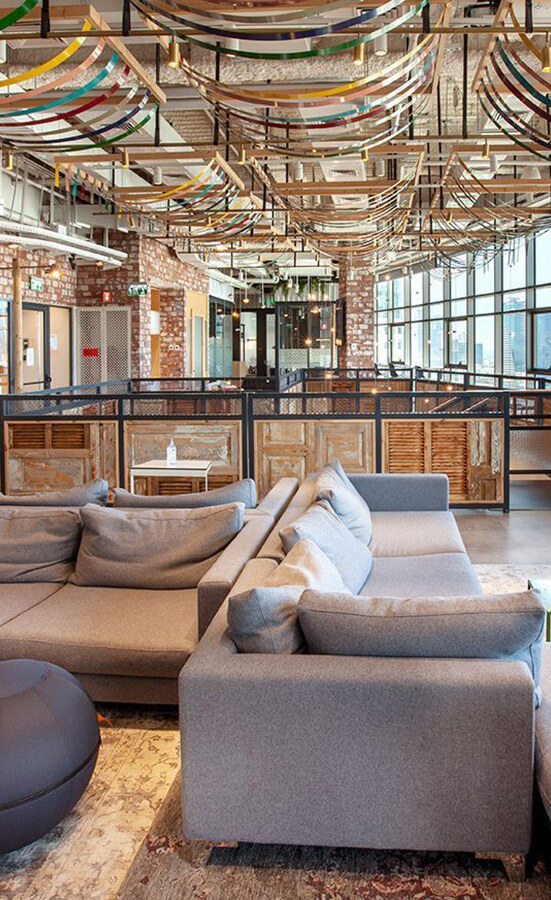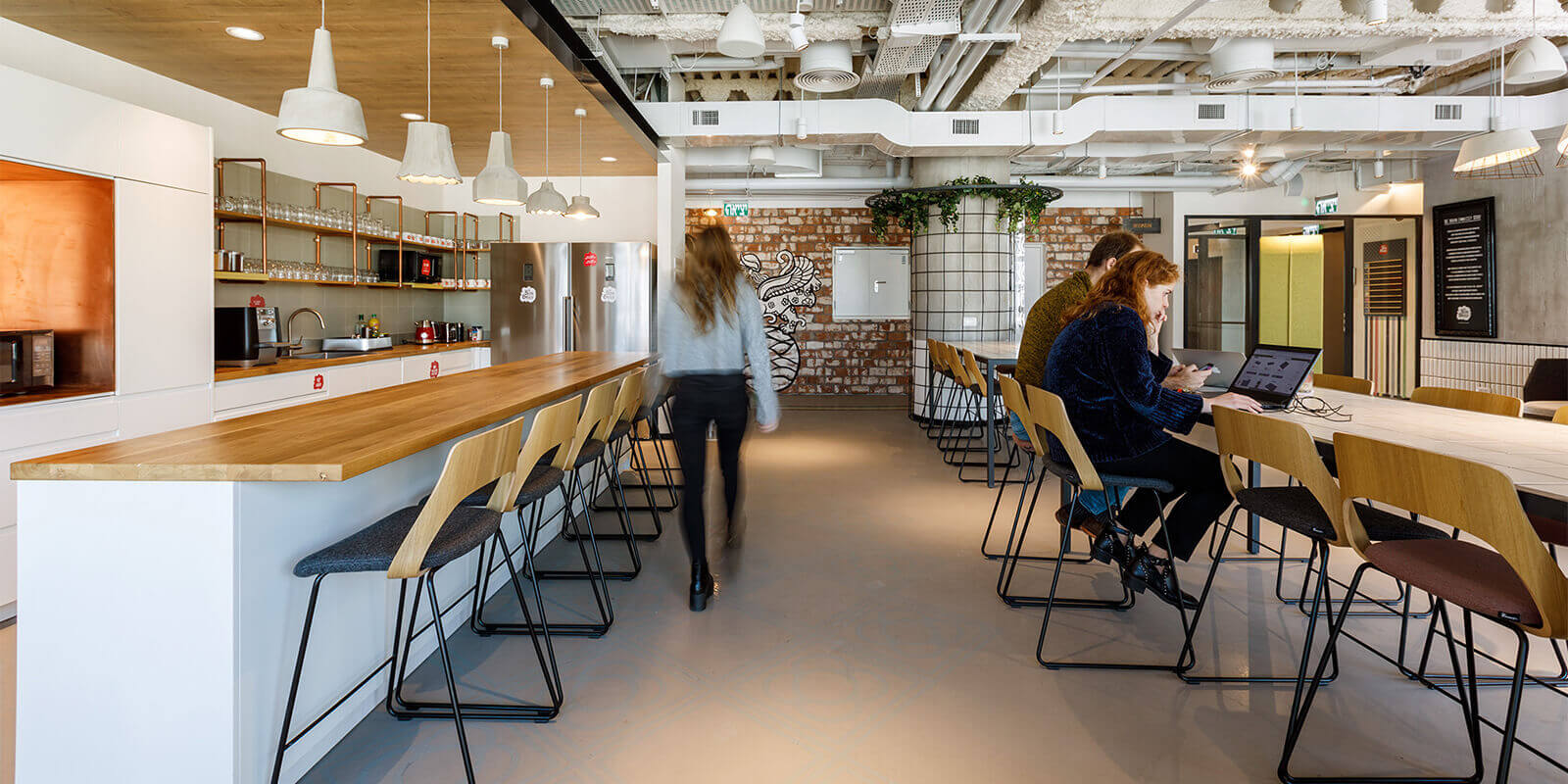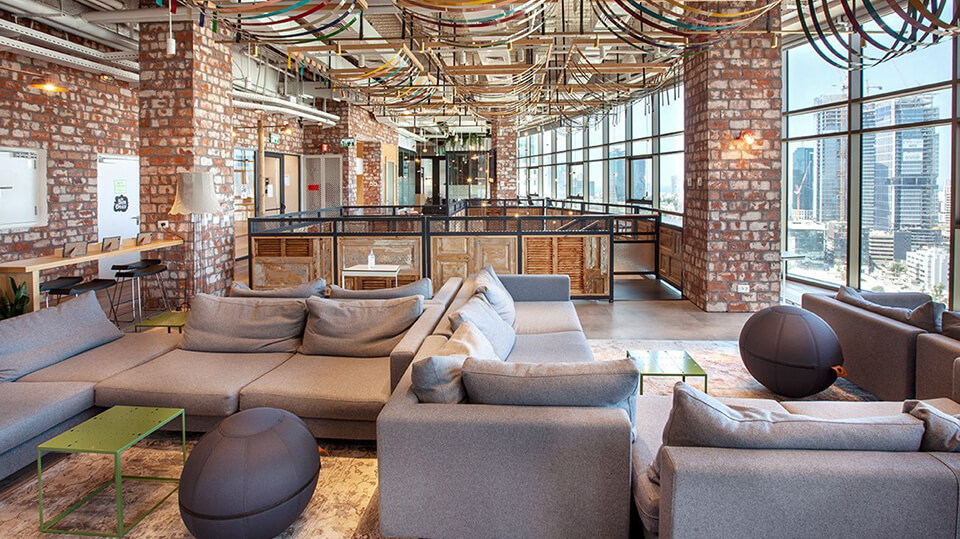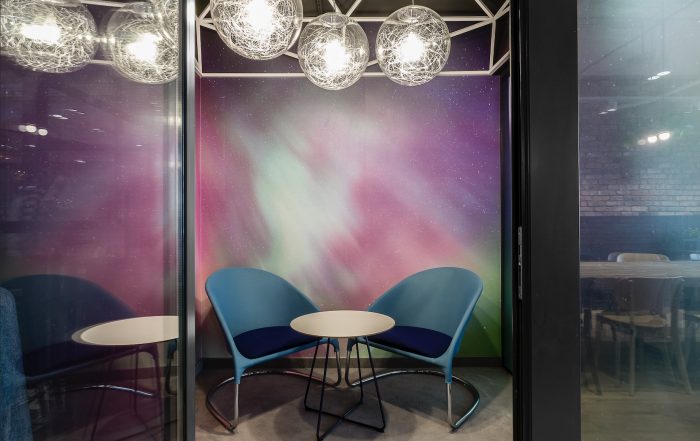
How was coworking impacted by the pandemic?

COVID forecasted doom for shared workspaces, and with it, a massive real estate downfall. However, in reality, coworking showed ingenuity in the face of crisis, and is now open to new opportunities.
Last spring provided cloudy forecasts for the shared workspace sector in Israel and around the world. What was once considered a home run real estate investment, thanks to COVID, turned into a strikeout alley. The headlines highlighted the prospect of companies having to close down due to the pandemic, others warned of a real estate bubble, and there were those who forecasted a wave of mergers and acquisitions to stay afloat. Once factoring in the accelerated, and somewhat spontaneous, transition to work-from-home, on the backend of the infamous WeWork IPO, it seemed the casket was set to close on the coworking office scene.

However, a year later, the clouds are beginning to disperse from over the sector, and it seems as if companies are starting to fill the void. Demand may have changed and rent is more flexible, but the first sector to hurt from the pandemic looks to be the first to recover. Coworking-space companies that did not make the necessary adjustments were hit hard by COVID, but those who adapted their business models to the period were able to cope far better with the pandemic-imposed restrictions.
Everyone moves to WFH? Not exactly
The air has changed. Coworking spaces have altered their approach with a more mature and balanced one - which is good. Despite the pandemic still looming, various shared workspaces are now offering flexible contracts, making them more appealing for small companies scouring for office space solutions; Giant corporations like Facebook and Google, which have announced WFH for their people for the near future, are now focusing on renting offices for their employees - preparing for the future of work or as an alternative to capsules; freelancers and trade workers who need space and a break from working at home have found coworking companies as an optimal solution; and of course, startups and SMEs which desperately need affordable office spaces to help growth.

The accelerated transition to work-from-home is a trend that will be with us for years to come. But at the same time, the trend shows steady moderation, and processes are becoming more ambiguous then they were presented to be at the start. This has resulted, for example, in companies challenged to incorporate company culture in a remote work setting, new employees onboarded without a feeling of camaraderie or a connection to the organization. And through all this, we haven’t even mentioned the challenges of managing and supervising while remote - a problem that is still far from solution. All of these challenges make coworking spaces more relevant to the way we work nowadays; it offers flexibility and creates a hybrid-like reality that helps alleviate the burden for both employer and employee, while adhering to public health regulations that can change at a moment's notice.
Usually, dooming predictions aren’t casted in a void, oftentimes they play out exactly as forecasted, but in many less extreme cases, and with a more realistic view, the glass half full starts to show. These days, global real estate companies are recovering from what looked at the beginning like a major dip. Despite the uncertainty, coworking spaces are reporting an increase in office renters, further providing positive solutions to the dark and harmful forecasts of a year ago.








